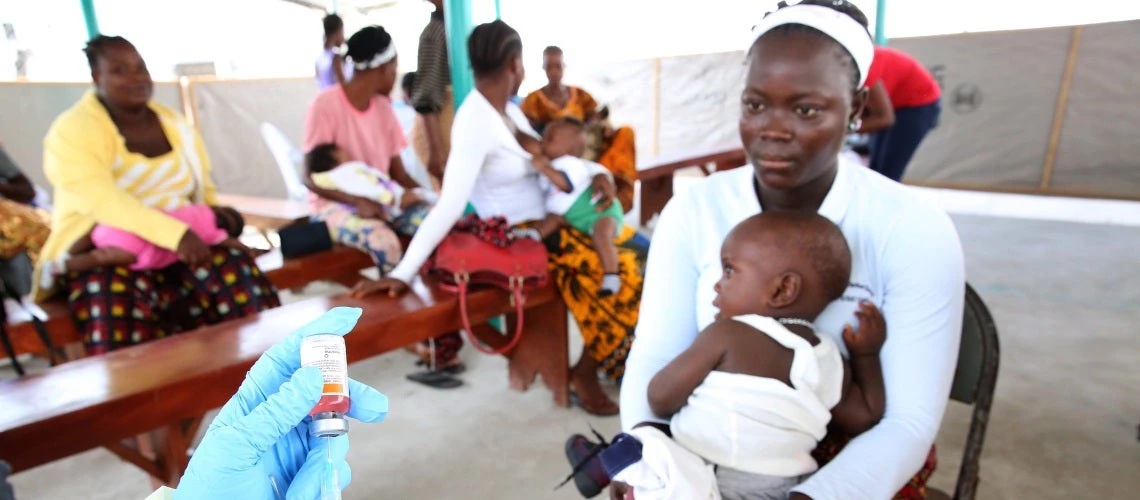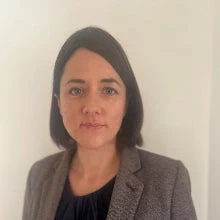 One of the two WHO-recommended malaria vaccines prevents around 75% of malaria episodes when given seasonally in conjunction with other effective malaria interventions. Copyright: Dominic Chavez/World Bank
One of the two WHO-recommended malaria vaccines prevents around 75% of malaria episodes when given seasonally in conjunction with other effective malaria interventions. Copyright: Dominic Chavez/World Bank
Last month, Cameroon became the first country to start rolling out malaria vaccination as part of its routine immunization program, with Burkina Faso joining just yesterday. This follows successful malaria vaccine trials in Ghana, Kenya, and Malawi where over 2 million children participated in evaluating RTS, S – one of two WHO-recommended vaccines to fight malaria.
According to the Malaria Vaccine Implementation Programme—a body created to assess the public health use of the RTS, S—the vaccine prevents around 75% of malaria episodes when given seasonally in conjunction with other effective malaria interventions. Implementation data also points to a substantial fall in severe malaria hospitalizations and a remarkable (13%) drop in all-cause mortality (i.e., not just from malaria) from use of the vaccine.
New tool in the fight against malaria
This is big news: malaria is one of the world’s deadliest diseases, killing over half a million people a year, mainly children under five years of age in sub-Saharan Africa. Lower immunity during pregnancy makes it a particularly dangerous disease for women as well, with up 25 million pregnant women affected annually.
Malaria has a major impact on families due to the heavy burden it places on households. Treatment is expensive – and must often be sought multiple times a year. It also puts a strain on health systems, especially primary health care services since clinics and dispensaries are the main providers of treatment and prevention interventions.
The economic costs of malaria are estimated to be huge – though difficult to quantify precisely due to gaps in data. Malaria causes missed days at work or school, as well as drops in productivity. One estimate suggests that, among countries with intense transmission, malaria reduces GDP growth by up to 1.3%.
Against this backdrop, there are several opportunities to support the sustainable rollout of new malaria vaccines, as part of a package of essential interventions.
- Relentless focus on health systems
Malaria control has been an important part of the World Bank’s health portfolio for over three decades. Its experience in supporting health systems – through analytics, technical support, and financing – remains critical to providing support for this new vaccine, as part of routine immunization programs.
It is not a simple question of procuring enough doses, though even this isn’t always straightforward. Running a successful immunization program requires health ministries to train healthcare workers and ensure adequate vaccine storage. Robust information systems are also necessary to record vaccine doses delivered and rationalize how they fit with other vaccines that form part of a country’s immunization schedule.
Demand generation at community level is a major consideration since RTS, S – also known as Mosquirix – is currently set to be delivered in four doses. While most doses can be given along with other vaccines that fall within current immunization programs, an additional visit will likely be needed to adhere to the recommended regimen. Families will need to be convinced that this extra trip to the clinic is worth it. Combating vaccine hesitancy for other reasons – be it safety or perceived ineffectiveness – is another consideration.
There are also questions of how to sequence and coordinate the roll out and how to deliver the vaccine alongside other health and environmental interventions. Complementary control measures such as providing insecticide-treated nets, clearing vegetation, and draining stagnant water must continue to be incorporated as part of malaria control efforts, which means strong collaboration between numerous departments and ministries. This level of multisectoral collaboration may prove challenging given the vertical way in which most vaccine programs are delivered and how difficult it can be to change long established ways of workings.
- Support for long term planning and budgeting
The World Bank’s support for strengthening planning and resource prioritization is critical in helping countries implement cost-effective and equitable interventions, while considering financial and health systems constraints.
This support will be critical given that there is a now a second vaccine – R21/Matrix-M – on the market that is about half the price of RTS, S and is easier to produce, meaning that there are likely to be fewer supply constraints.
But even with a cheaper vaccine, there are still likely to be significant financing gaps. In the short term, there may be scope for the World Bank to leverage existing immunization-focused operations to support countries with malaria vaccine delivery (as is the plan in the case in Nigeria) or to look at how broader health systems strengthen programs could play a role.
For countries that aren’t receiving vaccine delivery support in the short term, but who would like to introduce malaria vaccines, new World Bank financing could be considered as part of broader system financing. In the longer term, fiscal space analyses will be important as countries navigate the process of moving towards full self-financing of vaccines.
- Strong partnerships
The World Bank is proud to be a founding partner of Gavi, The Vaccine Alliance, who aims to introduce RTS, S in 20 African countries in 2024 reaching over 6 million children. The World Bank works closely with Gavi as a board member and technical partner at country level. In addition, it is part of various global technical teams including the Malaria Vaccine Coordination Team, which is helping countries with their grant applications to Gavi and is also part of broader prioritization discussions.
It has also recently committed to stronger collaboration with the Global Fund to Fight AIDS, Tuberculosis and Malaria, whose efforts to strengthen country malaria control/elimination interventions have been critical over the last two decades. Efforts to operationalize this pledge, especially at country level, are currently under way with work set to focus on climate and health, health financing and regional manufacturing – all highly relevant to malaria control.
These existing partnerships may provide an entry point to support Gavi and the Global Fund’s recent commitment to optimize the deployment of malaria vaccines ensuring that they are not delivered as a standalone intervention, but in conjunction with other proven, cost-effective measures.
To receive weekly articles, sign-up here




Join the Conversation